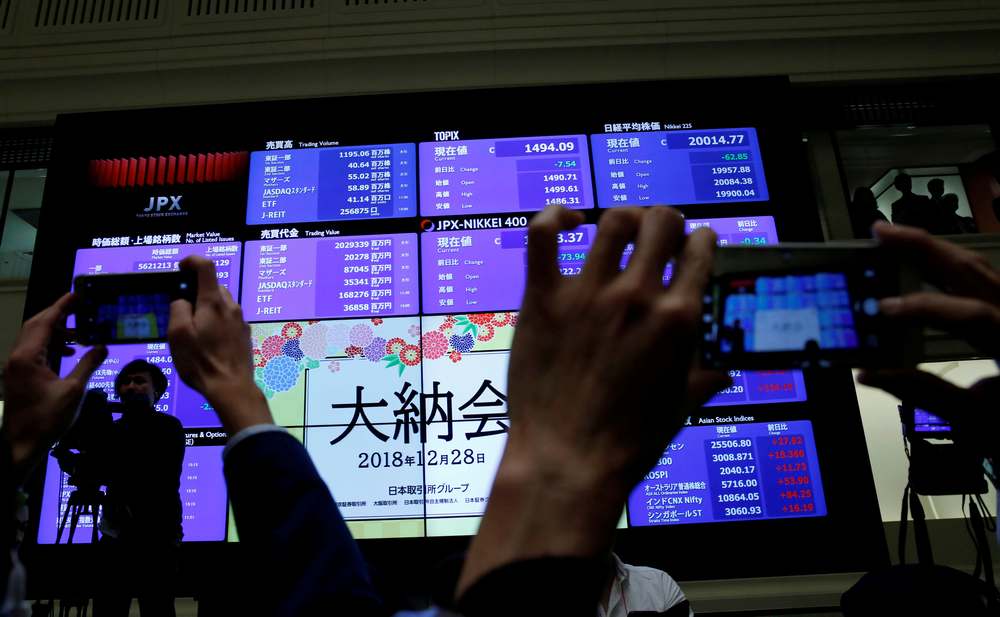
Stocks in Asia were lower on Monday, as shares on a new Nasdaq-style technology board on the Shanghai Stock Exchange skyrocketed on their debut day.
In mainland China, the Shanghai composite slipped 1.27% on the day to 2,886.97, while the Shenzhen composite shed 1.785% to close at 1,532.43.
The STAR market started trading in Shanghai on Monday, as shares of the first batch of 25 companies surged following a massive oversubscription prior to their public debut.
Over in Hong Kong, the Hang Seng index slipped 1.2%, as of its final hour of trading.
The Nikkei 225 in Japan declined 0.23% to close at 21,416.79, with shares of convenience store chain Familymart dropping 3.11%. The Topix index also fell 0.49% to end its trading day at 1,556.37.
Shares of Asahi Group Holdings plunged 8.87% after the company announced it will issue up to 200 billion yen (approx. $1.85 billion) of shares to fund its planned purchase of Anheuser Busch InBev’s Australian operations.
Japanese Prime Minister Shinzo Abe’s ruling coalition won a majority in the country’s upper house of Parliament in elections on Sunday. That came as Japan remains embroiled in a trade dispute with South Korea.
“I hope with the election out of the way, Abe feels the pressure is off him to take a hard line,” Richard Martin, managing director at IMA Asia, told CNBC’s “Squawk Box” on Monday.
“There is scope to come back to the table and renegotiate,” Martin said. “Without that election pressure on him, i hope he can do it.”
South Korea’s Kospi finished its trading day fractionally lower at 2,093.34 as shares of Hyundai Motor fell 1.12%. Over in Australia, the S&P/ASX 200 declined 0.14% to close at 6,691.20.
Overall, the MSCI Asia ex-Japan index slipped 0.52%.
Meanwhile, tensions remained high in the Middle East. Iran said it seized a British-flagged oil tanker in the Strait of Hormuz last Friday, claiming that the vessel was “violating international regulations.”
In the afternoon of Asian trading hours on Monday, crude prices advanced. International benchmark Brent crude futures added 1.44% to $63.37 per barrel, while U.S. crude futures gained 1.04% to $56.21 per barrel.
“Tensions between Iran and the West continue to escalate with the tit for tat increasing in magnitude and thus increasing the risk of someone making an overstep leading to a military conflict, notwithstanding the fact that Iran, the US and its allies continue to say that they do not want a conflict,” Rodrigo Catril, senior foreign exchange strategist at National Australia Bank, wrote in a note.
The U.S. dollar index, which tracks the greenback against a basket of its peers, was at 97.175 after touching levels below 96.9 last week.
The Japanese yen traded at 107.93 against the dollar after seeing levels above 108.0 in the previous trading week. The Australian dollar changed hands at $0.7033 after touching lows below $0.702 last week.





























